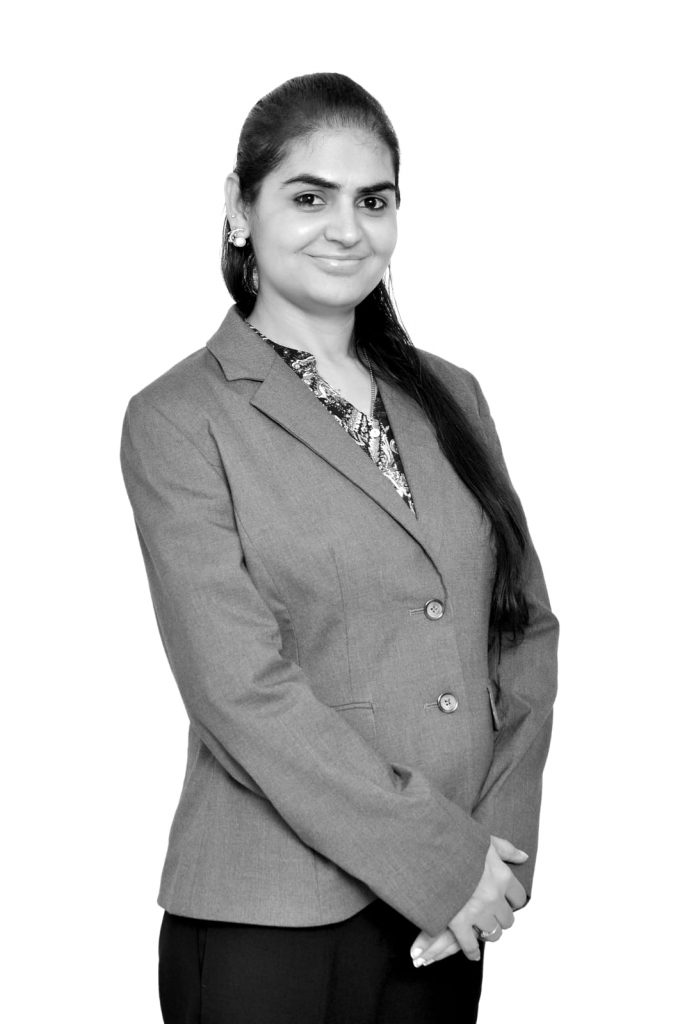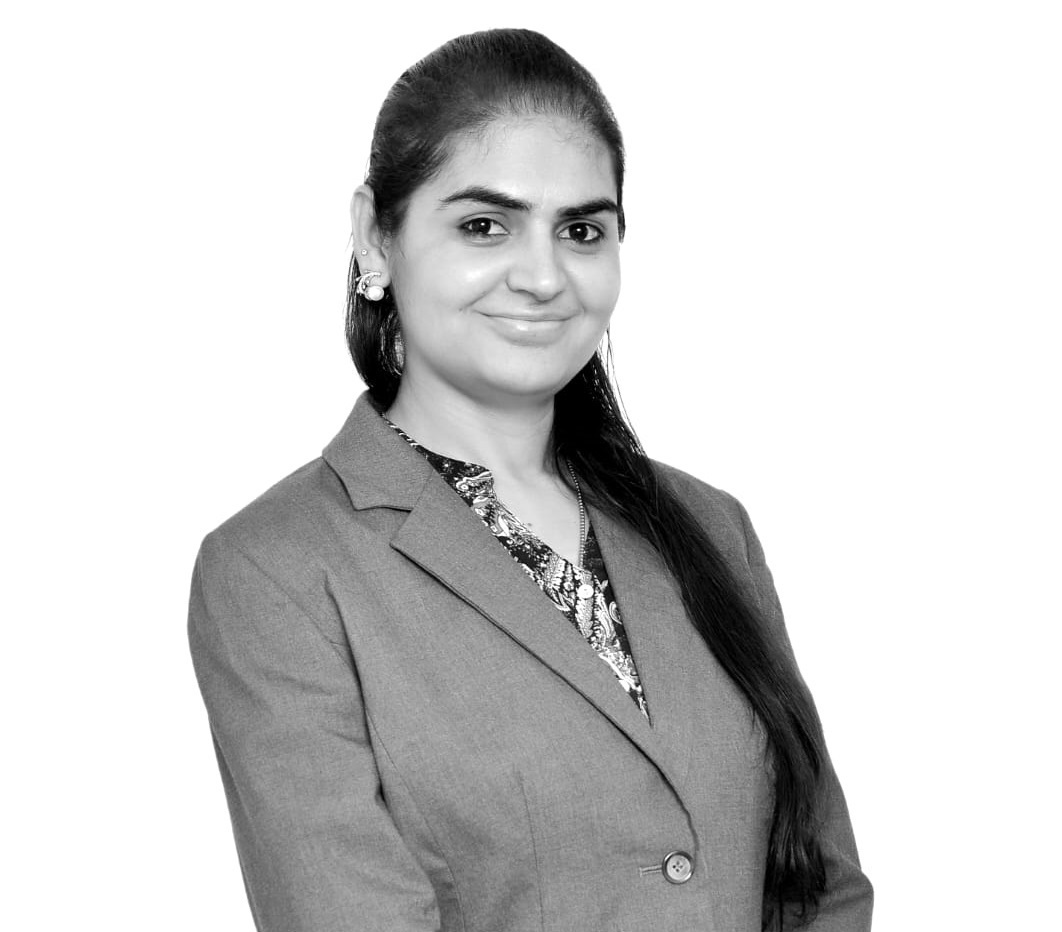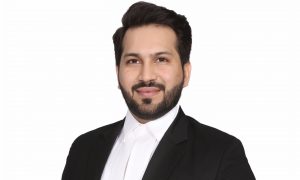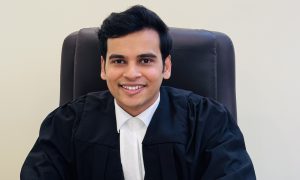This interview has been published by Namrata Singh and The SuperLawyer Team

Can you share what inspired you to pursue law, and how have your early experiences shaped your current practice and how the journey of your legal career began after graduating from Rajiv Gandhi National University of Law?
I had chosen the Science group in the Higher Secondary education and wanted to become doctor by profession, having inspired by a family friend excelling in Nureo Surgery. Choosing law as a career option was by chance with the constant support and guidance from my father and family who have been my pillar of strength and source for inspiration till date. My father happened to do law but chosen to become a Police officer in State services. Since I have had an immense interest in general knowledge and my family discussions generally revolved around current affairs, politics, history, I guess it had a silent part in helping me preparing for the NLU’s entrance exams. I was introduced to the study material of LST, Universal Publishers and GK books since many familiar acquaintances and seniors were studying in NLU’s and suggested to consider law as a career option. The 5 years B.A. LLB. NLU’s courses entrance examination was conducted separately, I appeared only for a few colleges having a proximity and comfort of my residence.
By the third year of law, I had decided to appear for the judicial examinations, so the inclination remained towards acquiring in depth knowledge of Civil and Criminal laws. After passing out, on basis of college merit, my profile was shortlisted for interview and led to appointment as Law clerk cum Research Assistant.
You’ve had an impressive journey from a Law-Clerk- Cum-Research Assistant to becoming an Advocate- On-Record at the Supreme Court of India. Could you share the key moments or decisions that guided your career towards this prestigious role?
In terms of exposure, the clerkship has opened wide horizons and given an entirely different take to observe, examine and analyse the nuanced approach employed to address the intricacies of law points from the bench side. In terms of the internships I did, they provided me with exposure, varied from a firm’s and/to a senior advocate’s perspective, so these experiences were different and rewarding for me and helped immensely and ignited a yearning in the initial years to pursue law as a profession.
After working with esteemed law firms and Senior Advocates, you transitioned to independent practice. What challenges did you face during this shift, and how did you overcome them?
I would say working with the law firm happened to be the best decision in terms of learning various branches of law and access right from trial courts to the Supreme Court of India, that has given a first-hand exposure to argue the matters before various forums and enabled me to brief the senior counsels for the matters.
While working at senior’s office, the approach was different, and it was predominantly assisting on the case briefs received by senior before the Supreme Court and various High Courts.
The Advocate-On-Record Examination is known for its rigor. How did you prepare for this exam, and what advice would you give to aspiring advocates aiming to take this path?
By the time I wanted to take up the AOR Examination, I had already started my practice before the Apex Court. Hence, was having fair amount of exposure towards the practice and procedure of the Supreme Court. Though, at present there is ample literature readily available for clearing the exam, it’s always advisable to undergo 1-year training period seriously with an AOR to gain knowledge and nuances in practice and procedure as this is one amongst the four subjects in the examination. Besides that, the three other papers being drafting, legal ethics and case laws must be prepared meticulously with focus on various intricate details.
How do you balance your work life between litigation and corporate advisory? Do you find one more fulfilling than the other, or do they complement each other in your practice?
While working with law firm, I had first-hand experience with drafting notices, due diligence for companies, handling and advising high-profile clients before DRT, BIFR, and CLB helped me in enhancing the skills of corporate advisory practice.
I would say, a delicate balance must be maintained between the two. I apparently enjoy both fields thoroughly and get a very fulfilling feel while employing the intricacies of one field in terms of execution and implementation in the other. As per me, a well-drafted advocate will have an upper hand in court crafting and presenting the case. Therefore, I find both complimenting each other.
As a partner at ABM Chambers, you head the Capital Markets, Compliances & Advisory division. Could you elaborate on the complexities involved in advising corporate clients, especially in dispute resolution?
Balancing the interest of various stakeholders in the corporate entity is a challenge in itself. For a corporate client, a dispute resolution usually requires taking a multifaceted approach, integrating the legal expertise with the understanding of the business needs. Evaluating the costs of various dispute resolution options and the potential benefits /damages both in terms of cost and time are key in a decision-making process. So, advising a corporate client, is a sum total of various factors before arriving at a decision.
Considering the diverse areas, you practice in, such as Constitutional Law and Corporate Advisory, did you pursue any specialized courses or training after your formal education to enhance your expertise? How important do you think continued legal education is for a successful legal career?
It is too individualistic; a different viewpoint always exists and can’t be generic. There is a sub-set, who secure jobs through PPO’s and pursue one field continuously, develop a domain knowledge and commend over that stream out of their extensive experience spanning the years due to exposure through handling a similar set of matters. However, this is solely dependent on individual knowledge, skill set, and extensive experience over discipline.
For me, it has been about the development of interest in capital market through continuous reading and being exposed to the field through my work with the law firm and my own investments that I had acquired over the years. While working, I have undertaken various assignments as to advising policy drafting for startup companies, MSME’s, advising them regularly with the ever changing legal and regulatory landscape, drafting and reviewing various sorts of agreements and contracts tailored for their need, keeping touch base with them and navigating the compliance aspects on regular basis.
Serving as a Panel Counsel for Railways and ONGC involves significant responsibility. What are some of the unique legal challenges you’ve encountered in these roles, and how have they contributed to your professional growth?
The issues that involve vast organization like ONGC and Railways are across the broad spectrum from Labour issues to contractual disputes. At an earlier stage in your career, working as a panel counsel for the PSU, you feel empowered and put to task in some of the complex legal issues. Because of the sheer volume of the work executed by these organizations, they invariably have to go through some legal impediments which from a legal perspective you cannot be exposed in any other organization, that to, at the formative stage of your career.
You practice before the Supreme Court of India, the High Court of Delhi, and Madras, as well as various tribunals. How do you manage the differences in legal procedures and expectations across these jurisdictions?
I had a brief work experience with an established decade old law firm based out of Chennai, which has helped in shaping my career and always kept me grounded while balancing my professional needs along with keeping empathy with clients and their requirements. In fact, appearing before different High Courts has helped me in observing the approach of judges while dealing the original and appellate side matters in different light altogether and enabled me to learn the high courts practice and procedure and neck of arguing the matter.
As a partner at ABM Chambers, you are in a leadership position. How do you mentor young lawyers in your firm, and what qualities do you believe are essential for leadership in the legal profession?
I believe in integrity and honesty to undertake and complete the assignment with swiftness in a stipulated period. While dealing with any matter be it litigation or advisory, one should adhere to the laws, rules and regulations operating in the field to provide a holistic shape to it before drafting or presenting. I believe being a part of such a vibrant and dynamic field we grow, learn, unlearn and relearn altogether, depending on the needs and requirement. But what’s more important is to have a positive outlook and constant feedback from your circle is key to achieve the goal. Law as a field is quite extensive and has a luring capacity extending an invitation to all for a level field and fair play. It’s just a combination of hard and smart work any individual ready to put in and the rewards would be unique and manifold.
Get in touch with Charulata Chaudhary-


























